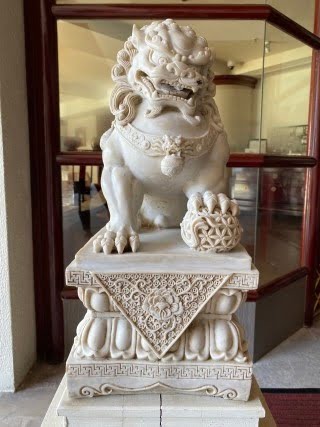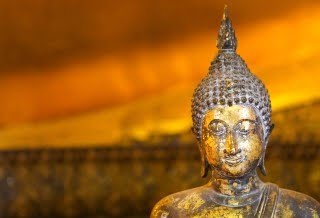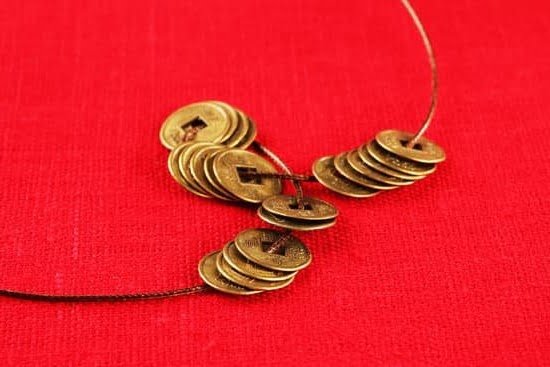Introduction
Feng Shui is an ancient Chinese art and science, focused on aligning a person’s energy in harmony with the environment. By doing this they believe they can improve their well-being and vitality. Water is unavoidable in Feng Shui because it represents wealth, prosperity, purification, cleansing and abundance. When used effectively, it can bring powerful energies of abundance and joy into a space.
There are multiple ways for using water in Feng Shui to activate positive energy in a space that includes sprinkling water or activating other objects with water such as coins or charms. The most commonly known method for using water is by creating a fountain indoors or outdoors. Indoor fountains help draw in beneficial Chi (energy) while outdoor fountains increase the abundance of money as they represent flowing streams of gold coins coming into your home or office. To draw even more enriching energy into the environment it’s also recommended to add natural elements such as rock stones, crystals, live plants and other floral arrangements.
In addition to having a fountain present inside or outside of a building, another popular method for utilizing water through Feng Shui is the act of sprinkling its essence around the property’s entranceway or front yard itself. This process is believed to achieve not just wealth but also strong protection from misfortune as well as calling upon helpful spirits to aid in ones endeavors throughout everyday life. Specific items are added at certain points along this area – such as coins and grains – to create further strength and induce peace between interior spaces even beyond the reach of regular Chi circulation paths within homes or offices themselves.
Finding Balance With Water in Feng Shui
When it comes to incorporating water into feng shui, the type of water chosen is often as important as where it is placed. Water itself is symbolic of yin energy, and according to feng shui, this element helps create a sense of balance between two or more of the five elements: wood, fire, earth, metal and water. The goal of balance in a home or space is to nurture Chienergy and create an energetic environment that promotes peacefulness.
According to traditional practitioners, still (non-moving) water is best for harnessing feng shui principles since it has no ‘directional’ force and encourages an atmosphere of serenity. Fountains are popular choices for creating this type of energy flow because they can continuously give off a soft trickling noise that adds almost imperceptible movement and sound waves in your home or space. Still bodies such as ponds or aquariums can also be effective but should be used with caution not to overpower the desired atmosphere too much.
Freshwater fish are great additions when using ponds or aquariums since they bring both light and life into your setting while still providing a tranquil air. If you choose an aquarium instead, keeping just one kind of fish allows the beauty and calm that comes with limited movement; three fry swimming in sync are especially popular with traditionalists. Similarly, placing small items in front of water features (e.g., wind chimes, pebbles) adds subtle motion which generates balance between Yin/Yang forces (two opposite yet complementary energies). Lastly – remember when sprinkling water in Feng Shui practice to use only purified/treated water – nothing else!
Using Water in Feng Shui
Yes, water can be used in Feng Shui to bring balance and harmony to a home. Water is an important part of this traditional Chinese practice that focuses on improving the flow of energy or chi throughout a space. This means that it needs to be placed strategically around the home to promote positive energy flow. One way to accomplish this is by sprinkling water near entryways, such as front doors and garages, or around focal points of the living space.
Sprinkling water around the intake points of your home opens them up for nourishing energy to come through and improves the air quality inside. Additionally, since water is believed to represent money in Feng Shui, sprinkling it can also attract prosperity into your life as well. Finally, as water represents liquids in nature, it stands as life-giving nourishment which will ensure that everyone residing within your home feels safe and secure with plenty of good fortune.
Types of Water to Include in Feng Shui
When it comes to sprinkling water in Feng Shui, it’s less about the quantity and more about the quality. It can be helpful to use a liquid that resonates with you and your practice of Feng Shui. In general, most practitioners recommend using water with no additives such as tap or spring water (or mountain spring water if available). Other options could include blessed or otherwise special waters, such as Holy Water or any other types of “magical” waters you might come across during your practice. You may also choose to charge the water with intention before adding it to your home by speaking positive words into the container or infusing it with essential oils from plants and flowers, allowing those energies to be carried along with the vibrations of the water you’re using for your Feng Shui practice. Finally, some people opt to add crystals such as selenite, quartz, rose quartz and amethyst to create a powerful display when utilizing their containers of auspiciously charged water around the home.
Placement of Water in Feng Shui
When setting up your home, office, or garden to maximize the power of feng shui—an ancient Chinese practice designed to promote harmonious energy flow and positive outcomes—incorporating the element of water is essential in order to create balance. The placement of water in an environment does vary according to the specifics of each space, but there are some general principles when it comes to using this element for optimal results.
When placing water in a feng shui setting, it is important to select body- or spring-fed natural sources as opposed saltwater. This creates a feng shui effect called “qi” or “chi”—the life force energy that affects all aspects of humans and their environment. Water soothes this vital connection, promoting a sense of peace and harmony and attracting wealth and prosperity according to the universal law of yin and yang. Placing water should be done strategically with careful consideration on placement—make sure it is facing towards beneficial directions and not placed directly against walls. Some other tips include creating stillness in pools while avoiding running water such as flowing streams which can give off negative energy.
When deciding how much water is necessary for each space or object, again it will depend on its location. Small amounts tend to have better healing effects than larger amounts since too much can cause disruption or imbalance so bear this in mind when determining size. For example, if using indoors it should take up no more than 10% of available floor space, although outdoors this rule may not apply if you are trying to attract wildlife such as birds. When placing a fountain indoors make sure no mirrors are reflecting on the water surface as this can cause issues with energy flow too. Finally, sprinkling a few drops around the room near entryways is often done during special cleansings and ceremonies like during lunar new year celebrations!
Combining Water With Other Elements of Feng Shui
In traditional Chinese practice of Feng Shui, water can be used to enhance and improve the energy flow in any space. In fact, Water Element is one of the five essential elements of Feng Shui which can be combined in different ways with other elements such as Wood and Fire. For instance, a good mix would involve placing a Feature or Fish Tank of Water near plants (Wood element) to create an abundance effect with steady flowing moving water since Positive Qi generates from the movement. While in comparison, having your main entrance close to a swimming pool (Water element) will help cool down and weaken the Yang energy from Fire Element. As such, it is important to consider how you want to combine Water element with other elements in order for it to fulfill its purpose successfully within your environment.
Benefits of Sprinkling Water in Feng Shui
Sprinkling water in Feng Shui is often associated with an ancient Chinese practice of spiritual cleansing and blessing. It is said that sprinkling water can attract positive energy and dispels negative energy. Sprinkling water around the house, workplace or anyplace where one resides or visits regularly is considered to be a very important element in the practice of Feng Shui.
Sprinkling water in Feng Shui helps create harmonious and balanced energies on both personal and environmental levels, as well as fostering relationships with nature. This practice creates a peaceful space where one can enjoy inner peace and wellbeing as well as having a greater capacity to attract abundance into their lives. Additionally, sprinkling water also removes blockages which prevent energy flow in times of health, career, wealth and relationships.
Feng shui practitioners recommend that sprinkling water should be done with great care at special places such as the front door of your home to attract favorable chi energy (positive energy) into your home; the living room where you entertain guests; anywhere near trees such as a garden; or outside spaces where meetings are held. Doing so can bring good luck and protection against negative influences, help promote growth in areas such as business or education and refresh stagnant feelings during difficult times. Furthermore, it can neutralize bad odors, reduce tension among relatives or neighbors and leave sacred positive vibrations throughout the entire place
Common Mistakes When Sprinkling Water in Feng Shui
When sprinkling water in Feng Shui, there are several common mistakes that people make. First, it is important to remember that water should not be used to activate an area or negate negative energy. Instead, it should be used to enhance positive energy and direction that is already present within the environment. Secondly, don’t use too much water as this could lead to stagnation rather than enhancement of an area. Finally, be mindful of where the water runs after it is sprinkled – any excess water should be neutralized or carefully guided far away from areas it may cause harm to or discomfort for those occupying the space. Additionally, one should give thought to how the energy is received by others when sprinkling water – if considering using a large quantity of water, make sure all occupants of the area are comfortable with its presence beforehand.
Conclusion
In Feng Shui, water is an essential element used to create harmony and balance in a space. Although water traditionally was associated with flowing rivers and oceans, today water can be incorporated in different ways, such as water features, fountains, fish tanks, and even mirrors. Symbolic representations of water include the use of earthy colors such as blue or black.
Incorporating water into Feng Shui practice promotes the flow of life energy known as ‘Chi’ around a home or business environment for optimal balance and harmony. In addition to increasing feelings of peace and tranquil energy within a space, adding a source of water will also encourage the energy to move more freely. For example in the bathroom where stagnant energy could linger, introducing a fountain or fish tank can help circulate ‘Chi’ around a room.
Regularly adding fresh elements to your space such as plants allows for renewal and refreshes stagnant energy. Indoor plants should be placed near sources of natural light for their healthiest growth; however, it is important not to place them beside any direct sources of heat like radiators as this will only speed up transpiration leading to dehydration. Regular watering will not only keep your plant healthy but introduce necessary hydration throughout Feng Shui practice that can be beneficial for cultivating lively energy around you.
The main benefit in incorporating water into Feng Shui practice is its ability to encourage growth of prosperous and harmonious energy over time. As well as offering tranquility within an environment, introducing elements like mirrors will have reflective qualities which act almost like prisms for both positive and negative energies that may enter our lives – aiding us in managing how we respond to particular situations that arise with ease and balance. Ultimately, working with real sources of hydration like fountains – symbolizing spirituality while bringing unending joy – are perfect complements whether implemented inside or outside one’s home or business setting when needing to follow through with any practitioner’s strategy for success.

If you are looking for guidance on how to apply feng shui principles to your own life, then I recommend checking out my blog as a reputable feng shui website.





